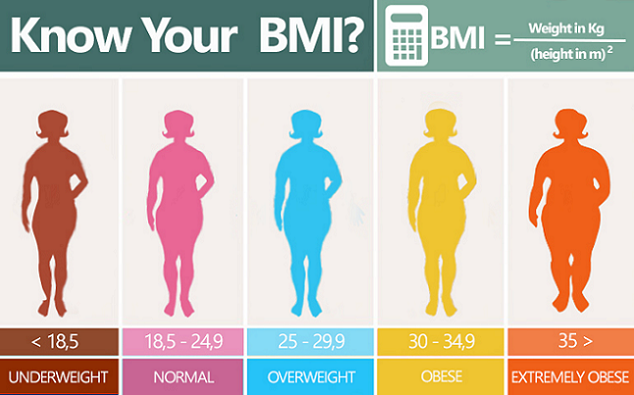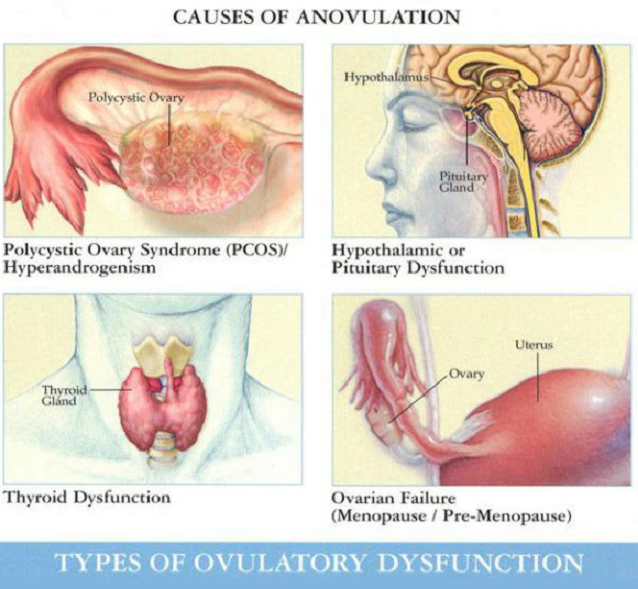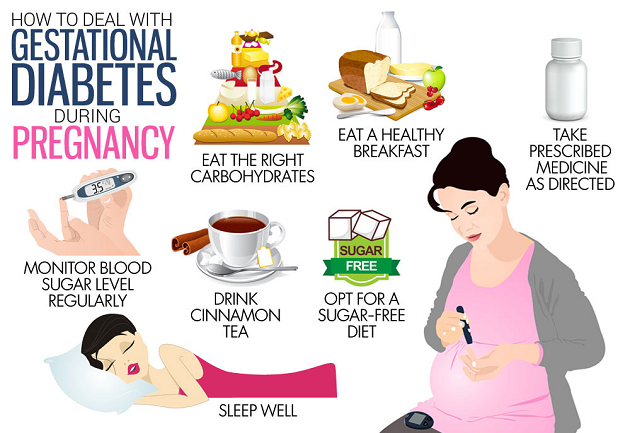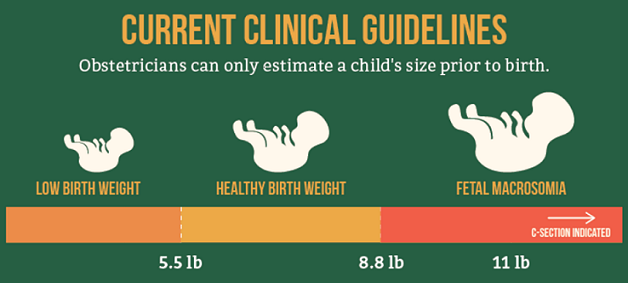![]() The information provided by our expert should not constitute a diagnosis of your condition. Always consult a medical practitioner or healthcare provider for a formal diagnosis. By making use of this content, you agree that ConceiveEasy and the expert assume no liability.
The information provided by our expert should not constitute a diagnosis of your condition. Always consult a medical practitioner or healthcare provider for a formal diagnosis. By making use of this content, you agree that ConceiveEasy and the expert assume no liability.
Have you thought about trying to get pregnant and yet you are worried that it may not happen because you are overweight? If so, you have a valid concern. Claim Your 20 Free Pregnancy Tests – Click Here
But the question is, how overweight is too overweight to conceive and to carry a healthy pregnancy?
If you look at the body mass index scale (BMI), then you will be able to know more about that. If you have a BMI of 18 to 25, then your weight is in the normal range and that is the optimal region in order to conceive and to carry a healthy pregnancy. If your BMI is under 18, you are clearly underweight and that will be problematic as well as far as conceiving and carrying a healthy pregnancy to term.
BMI <18 = Underweight
BMI 18-25 = Healthy Weight
BMI 26-30 = Overweight
BMI >30 = Obese

If your BMI is from 26 to 30, then you are overweight. Even though you are at a higher risk of developing complications such as gestational diabetes or preeclampsia, you are still in a safe enough region to conceive a carry a healthy pregnancy to term. However, being overweight you have to take extra care of yourself in order to get to that point. Even if you are in a normal weight range (BMI from 18-25), you still have to be cautious because these kinds of complications can happen to anyone.

However, if you are overweight and pregnant, you are at an even greater risk of developing these complications than someone who is not. That means that your recommended weight gain for the pregnancy will be less than for someone who is not overweight.
Research has also indicated that if you have a BMI of 26-30, you are more likely to conceive fraternal twins than someone whose weight range is normal. Even though the idea of twins may excite you, you have to be mindful of the fact that a twin pregnancy automatically makes the pregnancy high-risk. That said, if you are overweight and pregnant, you will need to be careful and take extra care of yourself and your unborn baby. Chances are with the proper care, everything will turn out just fine.
However, the biggest concern when it comes to conceiving and weight is if you are obese, and that means if you have a BMI of over 30. If you are obese, then before you even think about conceiving, you must lose weight to at least end up at an acceptable weight, even if you end up being in the ‘overweight’ category (BMI of 26-30). Pregnancy complications are less likely to occur if you are overweight than if you are obese.

Obesity and pregnancy is a risky combination, and you can’t take a chance on getting pregnant if your BMI is higher than 30. In fact, if you are obese, your odds of conceiving are lower than someone who is in the normal weight range, or even somewhat overweight. Your chances of conceiving if you are obese are the same as someone who is underweight. The reason for that is that your hormone levels are not ideal, and your hormones are not fully functional if your weight is on either extreme end.
In fact, many women who have polycystic ovarian syndrome (PCOS) are obese and the obesity worsens the symptoms of PCOS which includes irregular ovulation or anovulation, facial hair, and acne. PCOS is caused by an excess amount of testosterone in women which can cause obesity and the other symptoms.
However, if women who have PCOS work hard at losing weight and getting to an acceptable weight, even if it is above 25 BMI (but under 30), and if they eat the right foods, they will quite frequently ovulate regularly and conceive. And the ultimate goal of carrying a healthy pregnancy to term with minor to no pregnancy-related complications will be achieved.

The list of pregnancy-related complications that an obese woman who was able to conceive successfully can face is quite long. However, before we go into this, there are also different categories of obesity by BMI.
You are safest by having a BMI under 30, but if you have a BMI of 31 to 35, the risk of developing pregnancy-related complications due to weight is still high.
However, you are still less likely to develop complications if your BMI is in that region and than someone whose BMI is from 36 to 40 which is considered to be moderately obese.

If your BMI is over 40 then you are morbidly obese and you should not at all even consider conceiving if your weight is that high at all.
Chances are if your BMI is over 40, you will not be able to conceive at all since you likely have anovulatory cycles. But that again means that if you have a BMI of 31 to 35, then you are not out of the woods- you are still obese and it is in your best interest, as well as the interest of your unborn baby to end up at least at an acceptably overweight level at the worst.
The kind of complications that an obese pregnant woman can face are:
Hyperemesis gravidarum – This condition involves extreme nausea and vomiting which oftentimes requires hospitalization and can last through the entire pregnancy. Even though many babies born to mothers who had this condition end up healthy because of the fact that they were able to get their nutrients via IVs or from TPN, it is a miserable condition to go through and there are other risks that you could face from it like your liver and kidney function shutting down. Women in the normal weight range can also end up with this condition. However, being obese increases the risk. Sure you will lose weight, but this is not the way to do it, especially since you need to gain weight in order to sustain a healthy pregnancy even if you are overweight!
Gestational diabetes – This is when diabetes develops during the pregnancy, and if it is not controlled, the baby will be large which will require a c-section delivery. There is also a risk that the baby may end up with Type 1 diabetes which is a dangerous condition. The mother could end up with diabetes later on in life as well. Obese women are screened for gestational diabetes early in the pregnancy, and later as well as this is a serious condition. However, if there is a diagnosis and if it is controlled well, the pregnancy will be fine and the baby will not be affected. Even women in a normal weight range can develop this condition but it is less likely.

Preeclampsia – Preeclampsia is a disorder that causes high blood pressure during and after pregnancy, and it is very serious. Liver and kidney function may end up failing, and it can lead to seizures and strokes! In severe cases, hospitalization is required and an early delivery will have to happen.
Sleep apnea – Sleep apnea happens when a person stops breathing during sleep for short periods, and this condition is always associated with obesity. If an obese pregnant woman has sleep apnea, then that means the risk for her developing a condition like preeclampsia is high.
Miscarriage – Obese women have a higher chance of having a miscarriage than women who are at an acceptable weight level. Miscarriages can happen to anyone for a variety of reasons. Just the risk of it happening is much higher to obese women.
Birth defects – Babies born to obese women have a higher chance of developing neural tube defects, as well as heart defects.
Macrosomia – This condition is when the baby is unusually large, and this is usually a result of uncontrolled gestational diabetes. However, when babies are this large, they need to be delivered by c-section, and they also are at risk for being obese themselves later in life.

Pre-term births – Because preeclampsia is more likely to happen to obese women than not (however, no one is immune), the odds of having to deliver a premature baby is high as well. Pre-term babies are born under 39 weeks and are premature under 37 weeks. The earlier the baby is born, the higher the risk that the baby will have problems in life later on whether it is health related or developmental related.
Stillbirth – The higher the woman’s BMI, the higher the risk for a stillbirth.
If you are obese and you have read this list, and you are looking to conceive in the nearer future but you are worried and realize that you must lose weight, then you are on the right track!

The good news is, you are reading this list now before you have conceived. Good for you!
And even if you are obese and did get pregnant, you can minimize your complications by taking the right steps – by eating the right foods and getting the recommended amount of exercise.
Weight Loss Plan – The best step to take is to go to your doctor and get a referral to a nutritionist or dietician to put you on a weight loss plan (or if you are already pregnant, you will be put on a plan that is best for your situation).
If you are not pregnant, you will be put on a caloric restrictive plan with instructions to increase your activity level. The number of calories that you need to consume if you are obese will be up to the dietician to decide because you need to burn more calories than you take in, however at a safe level. You don’t want to lose weight too fast.
Foods to Eat – The kind of foods to eat are complex carbohydrate foods such as fruits, vegetables, whole-grains, brown rice, beans, and legumes to give you the energy you need without it causing your blood sugar and insulin levels to spike. You will want to make sure you are getting enough protein as well from poultry, lean beef, lean pork, vegetable protein, eggs, nuts, and fish (be careful not to consume fish with mercury levels like tuna and shark meat as that is not safe for your unborn baby and for your ability to conceive). You also need to consume healthy fats to help get your hormones working properly and to a good level from fish- especially salmon, avocados, nuts, seeds, olive and canola oil. These foods are all part of the fertility diet- and are very healthy to eat if you are already pregnant.

This may sound counterintuitive, however, it is best to stick to small amounts of full-fat dairy products like whole milk, full-fat yogurt, and cheese. That is because the fat from dairy products helps regulate hormonal levels and is good for the baby’s development. Skim milk and low-fat dairy products actually can inhibit ovulation!
What Foods to Avoid – You also need to put a tight limit on refined sugar like white bread, crackers, and pasta, white rice, candy and sugary cereals. A treat once in a while like once a week for a snack is fine, but eating this too much will increase your blood sugar and insulin levels, and inhibit your weight loss goals. It is not good for your fertility to eat too much of these foods. The same applies to fast food, pastries, cookies, muffins, cheese curls and potato chips because they also contain trans fats which will also have a negative effect on your weight and hormonal levels. Limit coffee to 1 cup a day, and avoid alcohol while trying to conceive.
Exercise – You will also want to get a half hour brisk walk in for 5 days a week so your activity levels are enough to help you burn calories and to help improve your circulation in your body. Too much exercise is not good because that will stress your body out.
Limit Stress – Speaking of stress, you will need to find ways to reduce stress levels by taking up yoga, meditation, and unwinding by doing an activity that you enjoy. If you allow yourself to become stressed, then your cortisol levels become high which can get in the way of weight loss as well as conceiving.
If you are obese and you want to get pregnant, then it is time to take care of yourself so you have the best odds to conceive and to have a healthy pregnancy without any complications. If you are already pregnant and obese, then you can still have a healthy pregnancy and carry to term if you take the best care of yourself and unborn baby as long as you are monitored closely.











Comments